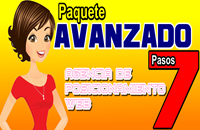” Intemperance has been the vice of every people, and is prevalent in all climes, notwithstanding that intoxicants, properly employed, may serve humanity’s highest aims. Beginning early in the history of a people, the disease increases with the growth of a nation, until, at last, unless the knife is used, civilization perishes. A lowly people becomes more depraved as the use of liquor increases; a cultivated people passes backward into barbarism with the depravities that come from dissipation. Here nations meet, and individuals sink to a common level. No drinking man is strong enough to say, ‘ I can not become dissipated-‘ no nation is rich and cultivated enough to view the debauch of its people without alarm.
” The disgusting habit of the drunken African finds its counterpart in the lascivious wine-bibber of aristocratic society. To picture the indecencies of society, that may be charged to debauchery, when the Grecian and Roman empires were at the height of greatness, would obscure the orgies of the barbarous African, and make preferable the brutality of the drunken American Indian. Intemperance brings men to the lowest level, and holds its power over all lands and all nations.”
” Did the aborigines know how to make intoxicants, and were barbarians intemperate before contact with civilized nations?”
” Yes.”
” But I have understood that drunkenness is a vice inherent only in civilized people; are not you mistaken?”
” No. Every clime, unless it be the far North where men are scarcely more than animals, furnishes intoxicants, and all people use them. I will tell you part of this record of nations.
” The Nubians make a barley beer which they call bouze, and also a wine, from the palm tree. The savages of Africa draw the clear, sweet juice of the palm oil tree into a gourd, in the morning, and by night it becomes a violent intoxicant. The natives of the Malayan Archipelago ferment and drink the sap of the flower stems of the cocoanut. The Tartar tribes make an intoxicating drink from mare’s milk, called koomis. In South America the natives drink a vile compound, called cane, distilled from sugar cane; and in the Sandwich Islands, the shrub kava supplies the intoxicant kava-kava, drunk by all the inhabitants, from king to slave, and mother to child. In the heart of Africa, cannibal tribes make legyce of a cereal, and indulge in wild orgies over their barbaric cup. In North America the Indians, before Columbus discovered America, made an intoxicating drink of the sap of the maple tree. The national drink of the Mexicans is pulque, a beastly intoxicant, prepared from the Agave Americana. Mead is an alcoholic drink, made of honey, and used in many countries. In China wine was indulged in from the earliest day, and in former times, had it not been for the influence of their philosophers, especially Confucius, who foresaw the end, the Chinese nation would have perished from drunkenness. Opium, that fearful enslaver of millions of human beings, is in every sense a narcotic intoxicant, and stands conspicuous as an agent, capable of being either a friend, a companion, or a master, as man permits. History fails to indicate the date of its introduction to humanity. In South America the leaf of the cocoa plant is a stimulant scarcely less to be dreaded than opium. The juice of a species of asclepias produces the intoxicant soma, used once by the Brahmins, not only as a drink, but also in sacrificial and religious ceremonies. Many different flavored liquors made of palm, cocoanuts, sugar, pepper, honey, spices, etc., were used by native Hindoos, and as intoxicants have been employed from the earliest days in India. The Vedic people were fearfully dissipated, and page after page of that wonderful sacred book, the Rig-Veda, is devoted to the habit of drunkenness. The worst classes of drunkards of India used Indian hemp to make bhang, or combined the deadly narcotic stramonium with arrack, a native beer, to produce a poisonous intoxicant. In that early day the inhabitants of India and China were fearfully depraved drunkards, and but for the reforms instituted by their wise men, must have perished as a people. Parahaoma, or ‘ hotna,’ is an intoxicant made from a lost plant that is described as having yellow blossoms, used by the ancient dissolute Persians from the day of Zoroaster. Cannabis sativa produces an intoxicant that in Turkey is known as hadschy, in Arabia and India as hashish, and to the Hottentots as dacha, and serves as a drunkard’s food in other lands. The fruit of the juniper produces gin, and the fermented juice of the grape, or malt liquors, in all civilized countries are the favorite intoxicants, their origin being lost in antiquity. Other substances, such as palm, apples, dates, and pomegranates have also been universally employed as drink producers.
” Go where you will, man’s tendency seems to be towards the bowl that inebriates, and yet it is not the use but the abuse of intoxicants that man has to dread. Could he be temperate, exhilarants would befriend.”
” But here,” I replied, ” in this underground land, where food is; free, and existence possible without an effort, this shameful vice has no existence. Here there is no incentive to intemperance, and even though man were present with his inherent passion for drink, he could not find means to gratify his appetite.”
” Ah,” my guide replied, ” that is an error. Why should this part of the earth prove an exception to the general rule? Nature always supplies the means, and man’s instinct teaches him how to prepare an intoxicant. So long as man is human his passions will rule. If you should prove unequal to the task you have undertaken, if you shrink from your journey, and turn back, the chances are you will fail to reach the surface of the earth. You will surely stop in the chamber which we now approach, and which I have now prepared you to enter, and will then become one of a band of earth drunkards; having all the lower passions of a mortal you will yet be lost to the virtues of man. In this chamber those who falter and turn back, stop and remain for all time, sinking until they become lower in the human scale than any drunkard on earth. Without any restraining influence, without a care, without necessity of food or incentive to exertion, in this habitation where heat and cold are unknown, and no motive for self-preservation exists, they turn their thoughts toward the ruling passion of mankind and- Listen! Do you not hear them? Listen!”
[goodbye]apocalipsis[/goodbye]







